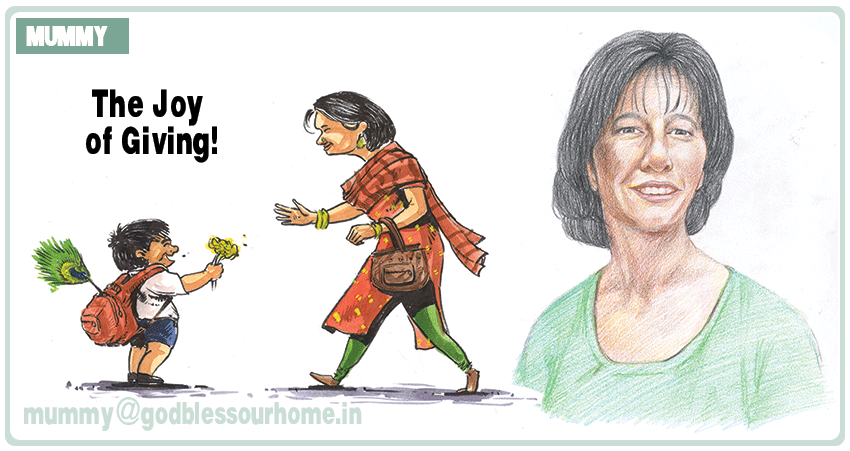

Five Benefits Charity Provides Giving to charity benefits yourself as much or more than it benefits those to whom you give. That reason alone should be sufficient to justify starting now. If you need more convincing, read on: 1. Giving to a charity helps make our communities better places to live by helping to provide goods and services to people who might not otherwise have access to them. When we raise the standard of living for the the least able among us, we raise our own standard of living in turn. 2. What motivates you more: Having stuff or feeling good? If you chose the latter, you're not alone. Many have found over centuries of recorded history that their ultimate satisfaction came from helping those in need. 3. Those who witness our giving are reminded that we are all interdependent on one another for our care and well-being. That reminder can have a viral effect and motivate countless others to follow your example. 4. At the very least, your gifts to charity will be rewarded, in part, by the government in the form of a reduced tax liability. Business owners can especially benefit from this if they give through their businesses. 5. Some believe that what they give to the world is returned to them threefold, sevenfold, or even tenfold! Their experiences bear out their beliefs. The only way you'll find out is to start. Any gift to a charity is better than no gift. Start at a level you're comfortable with now. Increase if, or more likely when, you feel able and willing to. Look at what your generosity does for others, and also observe the good that it does for you. Charity, giving and good karma There’s a special feeling you get when you give someone a present. It’s a warm feeling – you feel calm yet excited. You get the same feeling when you do a random act of kindness for a loved one, or even a stranger. Buying the newspaper seller a coffee, putting your spare coins in a vending machine or buying your partner a present, just because, all promote that helper’s high. It doesn’t even have to involve money. Offering to collect your elderly neighbour’s shopping or organising a charity collection have the same effect. “When you do something for someone else, your brain produces hormones,” says Dr David Hamilton, author of Why Kindness is Good for You. “Dopamine – which makes you feel happy, and gives you the feeling that what you are doing is right – and opiates, the body’s own secret stash of heroin and morphine.” So, giving is beneficial for both the giver and the receiver. A wealth of research supports the theory that giving makes you happy. When researchers gave two groups some money, telling the first to spend it on themselves, the second to buy a gift for someone else, the first group experienced momentary pleasure, but no long lasting satisfaction. The second group, on the other hand, returned at the end of the day with their happiness levels still high. |
“And the more regularly you give, the more that happiness becomes sustainable,” says Hamilton. Those who do charity work have supported the emotional benefits of giving too, showing lower levels of depression, and higher levels of self-esteem. It’s also good for your relationships. Kind acts bond two people, in fact, it’s within our genetics – we are wired to appreciate kindness. But the benefits of giving go beyond the emotional. “The act of doing something for another person in any capacity has health benefits,” says Hamilton. Performing acts of kindness has been found to boost your immune system, keep your heart healthy and even slow the ageing process. “Giving is also contagious,” says Hamilton. “It elevates people and inspires them. They process the kind act over and over again and because kindness is occupying their mind, they are more likely to do it for someone else. You end up with a ripple effect.” There are many ways to incorporate giving to others into your daily routine. Sign up to do some volunteering or just be alert to the opportunities around you, it could be as simple as helping a mother with her buggy or holding the lift door open for someone. “People often lack the courage to offer their help. But the more you give, the more courage you have to offer the next time,” says Hamilton. As Audrey Hepburn once said, “You have two hands, one for helping yourself, the other for helping others.” You can give skills. Are you a singer, musician, artist, therapist, chef, writer, web designer, accountant, etc. Whatever your area of expertise is, do some pro-bono work for a company that is doing impactful things in the community, but can’t afford your services. Write Books, articles and Tutorials- If you’ve got something to say, Type it into a compute file and email it as free to your friends relatives, magazines and websites. People are always ready to learn and tutorials are a great way to teach. Or Teach Public Speaking, Mentor young ones, give donations. Love and Kindness. There are so many hurting people in the world that could simply use a hug or someone to talk to about various issues of life. Sometimes just a smile is enough love to encourage someone. Small acts of kindness go a long way. You can offer to help an elderly person or a woman with small children to load groceries in her car. You can give up your seat on the train. You can let someone else have the closest parking spot. Bless those around you. That puts you on the highest vibrational frequency. Only those who are the most generous have the capacity to bless others. And others will lavish you with energy, enthusiasm and appreciation. And what will you get in return? Giving will opens up more possibilities for you. Giving teaches us to be more thankful and more appreciative of what you have. Giving makes room for you to receive more. So don’t seek to get. See to give. Give unselfishly and you’ll reap abundance in return. Give love and you’ll never be in short supply of it. Give friendship and you’ll never be without support and fierce loyalty. Let it not be said of you: “you have not because you give not.”
|
|---|






